Anne Driscoll
SustainBench: Benchmarks for Monitoring the Sustainable Development Goals with Machine Learning
Nov 08, 2021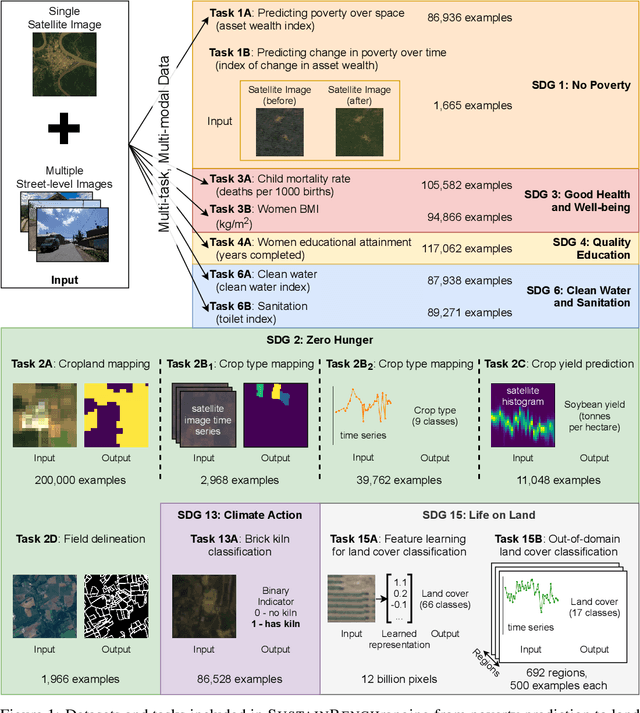
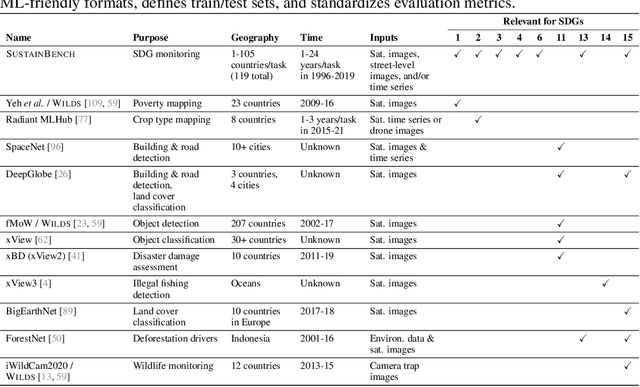
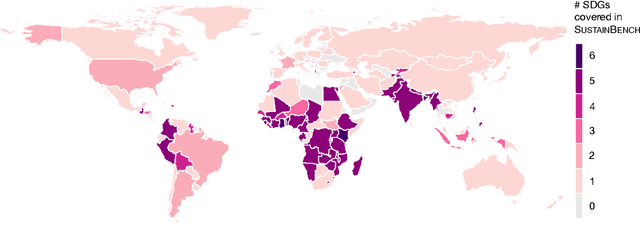
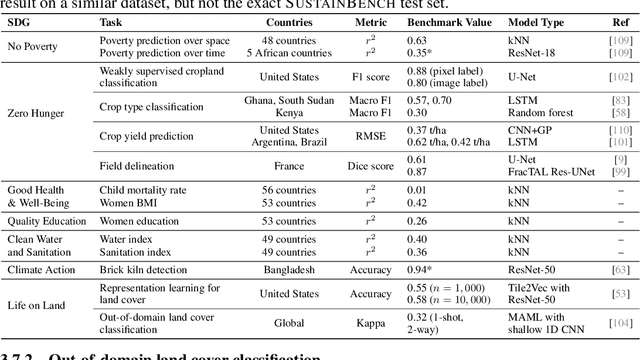
Abstract:Progress toward the United Nations Sustainable Development Goals (SDGs) has been hindered by a lack of data on key environmental and socioeconomic indicators, which historically have come from ground surveys with sparse temporal and spatial coverage. Recent advances in machine learning have made it possible to utilize abundant, frequently-updated, and globally available data, such as from satellites or social media, to provide insights into progress toward SDGs. Despite promising early results, approaches to using such data for SDG measurement thus far have largely evaluated on different datasets or used inconsistent evaluation metrics, making it hard to understand whether performance is improving and where additional research would be most fruitful. Furthermore, processing satellite and ground survey data requires domain knowledge that many in the machine learning community lack. In this paper, we introduce SustainBench, a collection of 15 benchmark tasks across 7 SDGs, including tasks related to economic development, agriculture, health, education, water and sanitation, climate action, and life on land. Datasets for 11 of the 15 tasks are released publicly for the first time. Our goals for SustainBench are to (1) lower the barriers to entry for the machine learning community to contribute to measuring and achieving the SDGs; (2) provide standard benchmarks for evaluating machine learning models on tasks across a variety of SDGs; and (3) encourage the development of novel machine learning methods where improved model performance facilitates progress towards the SDGs.
Using satellite imagery to understand and promote sustainable development
Sep 23, 2020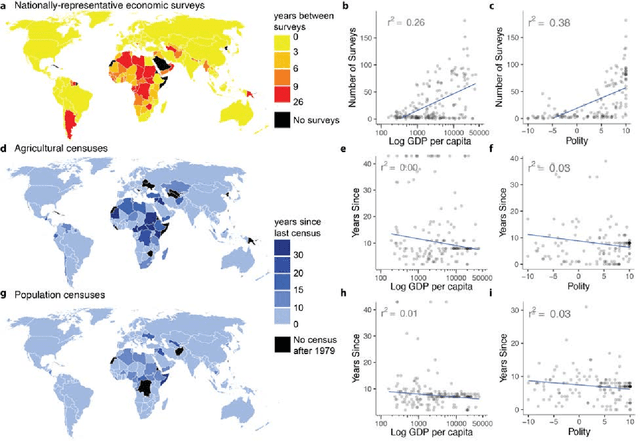

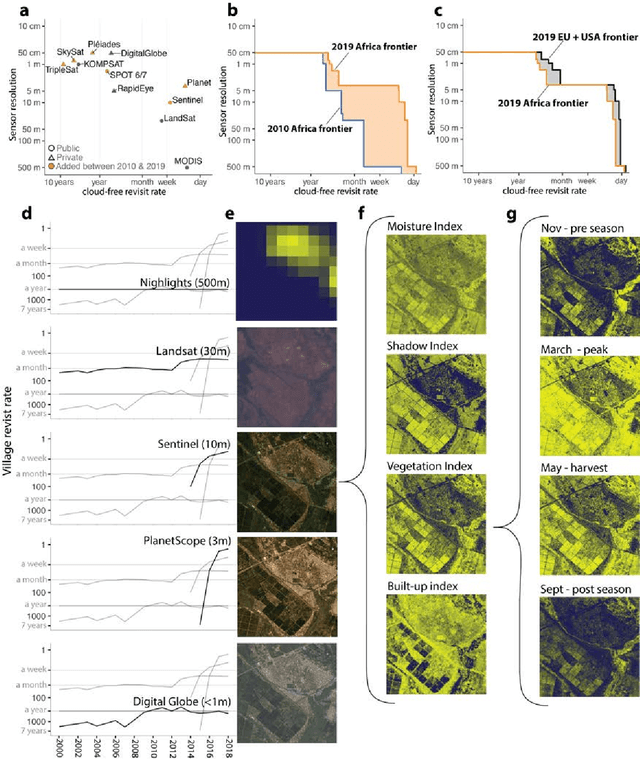
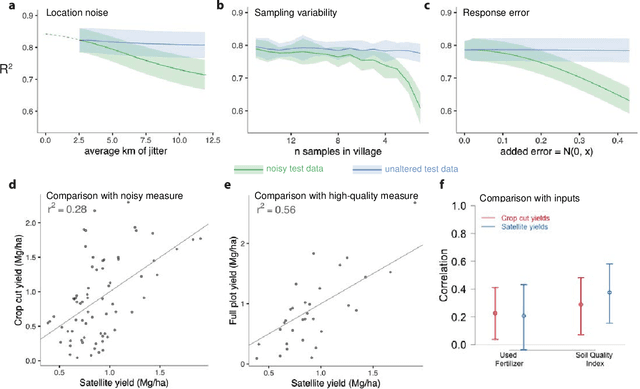
Abstract:Accurate and comprehensive measurements of a range of sustainable development outcomes are fundamental inputs into both research and policy. We synthesize the growing literature that uses satellite imagery to understand these outcomes, with a focus on approaches that combine imagery with machine learning. We quantify the paucity of ground data on key human-related outcomes and the growing abundance and resolution (spatial, temporal, and spectral) of satellite imagery. We then review recent machine learning approaches to model-building in the context of scarce and noisy training data, highlighting how this noise often leads to incorrect assessment of models' predictive performance. We quantify recent model performance across multiple sustainable development domains, discuss research and policy applications, explore constraints to future progress, and highlight key research directions for the field.
 Add to Chrome
Add to Chrome Add to Firefox
Add to Firefox Add to Edge
Add to Edge